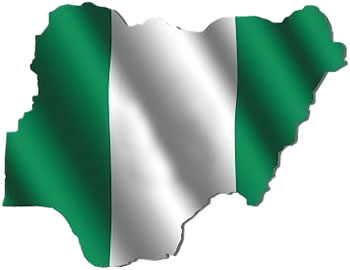The Federal Government has strongly refuted recent claims by some Western lawmakers and commentators alleging that a “Christian genocide” is unfolding in Nigeria, describing the narrative as false, misleading, and capable of fueling unnecessary religious tension.
According to official sources, the allegations—pushed by figures such as U.S. Senator Ted Cruz, CNN contributor Van Jones, and television host Bill Maher—alongside a controversial motion adopted by the Canadian Parliament labelling Nigeria “one of the most dangerous countries for Christians,” are based on flawed interpretations and incomplete information.
Security experts and independent analysts have dismissed these assertions as deliberate misinformation that ignores the complex social and security realities of the country. They stressed that Nigeria’s violence stems largely from terrorism, banditry, and communal conflicts—not religion.
Over the past 14 years, terrorist groups such as Boko Haram and the Islamic State West Africa Province (ISWAP) have attacked both churches and mosques, killing Christians and Muslims alike. “The claim that one religion is being systematically targeted for extermination is both inaccurate and divisive,” a senior security analyst said. “These groups kill indiscriminately—they don’t ask victims about their faith before pulling the trigger.”
While Christian communities in the Middle Belt and parts of the North have suffered heavily from farmer-herder clashes, Muslim populations in Borno, Zamfara, Katsina, Yobe, and Niger States have also endured mass killings, abductions, and displacement by insurgents and bandits.
Data from security agencies confirm that Boko Haram’s early atrocities included the bombing of mosques, assassination of Islamic clerics, and the slaughter of Muslims who opposed its extremist ideology. Experts say this evidence clearly contradicts the Western narrative of a religiously one-sided conflict.
Observers believe some Western politicians and media outlets are intentionally misrepresenting Nigeria’s security situation to fit geopolitical or ideological agendas. “Framing Nigeria’s internal conflicts as a war on Christians simplifies a far more complex crisis and undermines peacebuilding efforts,” one analyst noted.
During Boko Haram’s early years, several Western nations hesitated to label the group as a terrorist organisation despite mounting evidence of its brutality. “Ironically, some of the same voices that downplayed Boko Haram’s threat then are now exploiting it to push a false genocide narrative,” he added.
Humanitarian agencies operating across the North-East, North-West, and North-Central regions have confirmed that victims of violence come from both major faiths. Muslim-majority communities in Zamfara, Niger, and Katsina, and Christian-majority areas in Benue, Plateau, and Taraba have all suffered devastating attacks.
Experts warn that portraying the crisis as a religious war only deepens division and distracts from the real issues—terrorism, poverty, land disputes, and weak governance.
The government urged international partners to promote responsible reporting and constructive engagement that support peacebuilding, reconstruction, and counterterrorism efforts.
Nigeria remains a diverse nation where Christians and Muslims coexist peacefully in most communities. Religious and civic leaders continue to champion unity and mutual understanding as vital tools for lasting peace.
“The real conflict in Nigeria is not between Christians and Muslims—it is between peace and chaos,” a government spokesperson said. “Both faiths have suffered. Both must unite to end the violence.”
There is no Christian genocide in Nigeria. What exists is a shared tragedy of terror and insecurity affecting all citizens—Christians, Muslims, and others alike. The suffering is collective, and so must be the solution.




